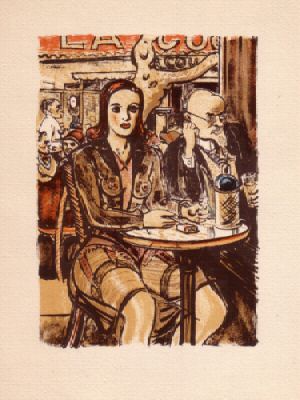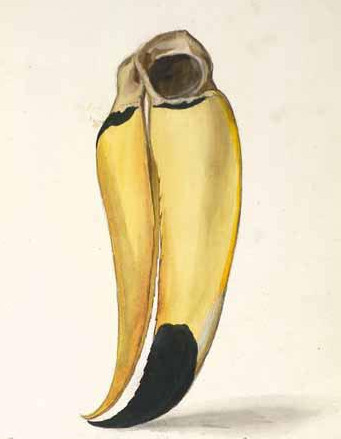I live in brooklyn now
Black Star and Common? Sign me up. B to the K.
Labels: music, new york i love you but you're bringing me down
Read more
Why, hello. Fancy seeing you here.



Labels: music, new york i love you but you're bringing me down
"Abdul Razzaq Hekmati was regarded here as a war hero, famous for his resistance to the Russian occupation in the 1980s and later for a daring prison break he organized for three opponents of the Taliban government in 1999.This is the 5th Amendment to the United States Constitution:But in 2003, Mr. Hekmati was arrested by American forces in southern Afghanistan when, senior Afghan officials here contend, he was falsely accused by his enemies of being a Taliban commander himself. For the next five years he was held at the American military base in Guantánamo Bay, Cuba, where he died of cancer on Dec. 30. (...)
Several high-ranking officials in President Hamid Karzai’s government say Mr. Hekmati’s detention at Guantánamo was a gross mistake. They were mentioned by Mr. Hekmati in his hearings and could have vouched for him. Records from the hearings show that only a cursory effort was made to reach them.
Two of those officials were men Mr. Hekmati had helped escape from the Taliban’s top security prison in Kandahar in 1999: Ismail Khan, now the minister of energy; and Hajji Zaher, a general in the Border Guards. Both men said they appealed to American officials about Mr. Hekmati’s case, but to no effect.
“What he did was very important for all Afghan people who were against the Taliban,” Hajji Zaher said of Mr. Hekmati’s role in organizing his prison break. “He was not a man to take to Guantánamo.” (...)
The 1999 escape was a deep humiliation for the Taliban government, which blocked roads and searched houses across the country for days afterward and offered $1 million for the capture of the escapees. Two of Mr. Hekmati’s relatives were badly tortured by the Taliban after the prison break as the Taliban looked for information.
Two of the men Mr. Hekmati freed, Mr. Khan and Hajji Zaher, returned to the battlefield to lead forces against the Taliban. They both received significant American support in 2001 and worked with Special Forces units.
A third man who escaped with them was another commander of the anti-Taliban Northern Alliance, Gen. Mohammed Qasim.
According to Mr. Hekmati’s account in his hearing in September 2005, he organized the escape because he opposed the Taliban’s “ruthlessness and injustice.” (...)
The men escaped to Iran, where Mr. Khan provided Mr. Hekmati and his family with a house and financial support in return for his daring. Mr. Hekmati said he returned to Afghanistan only in 2002, after the Taliban were toppled and Mr. Karzai’s interim government was installed. Within a year, he was arrested."
No person shall be held to answer for a capital, or otherwise infamous crime, unless on a presentment or indictment of a Grand Jury, except in cases arising in the land or naval forces, or in the Militia, when in actual service in time of War or public danger; nor shall any person be subject for the same offense to be twice put in jeopardy of life or limb; nor shall be compelled in any criminal case to be a witness against himself, nor be deprived of life, liberty, or property, without due process of law; nor shall private property be taken for public use, without just compensation.
Labels: america, law, politics
Labels: america, music, politics
Labels: america, television, the wire
Labels: drink, knitting, television, the wire
Labels: movies
Four score and seven years ago our fathers brought forth on this continent, a new nation, conceived in Liberty, and dedicated to the proposition that all men are created equal.
Now we are engaged in a great civil war, testing whether that nation, or any nation so conceived and so dedicated, can long endure. We are met on a great battle-field of that war. We have come to dedicate a portion of that field, as a final resting place for those who here gave their lives that that nation might live. It is altogether fitting and proper that we should do this.
But, in a larger sense, we can not dedicate -- we can not consecrate -- we can not hallow -- this ground. The brave men, living and dead, who struggled here, have consecrated it, far above our poor power to add or detract. The world will little note, nor long remember what we say here, but it can never forget what they did here. It is for us the living, rather, to be dedicated here to the unfinished work which they who fought here have thus far so nobly advanced. It is rather for us to be here dedicated to the great task remaining before us -- that from these honored dead we take increased devotion to that cause for which they gave the last full measure of devotion -- that we here highly resolve that these dead shall not have died in vain -- that this nation, under God, shall have a new birth of freedom -- and that government of the people, by the people, for the people, shall not perish from the earth.
Labels: america, history, lincoln
Labels: science, television
Labels: global climate change, trivia, we're fucked
"Our progress in degeneracy appears to me to be pretty rapid. As a nation, we began by declaring that "all men are created equal." We now practically read it "all men are created equal, except negroes." When the Know-Nothings get control, it will read "all men are created equal, except negroes, and foreigners, and catholics." When it comes to this I should prefer emigrating to some country where they make no pretense of loving liberty — to Russia, for instance, where despotism can be taken pure, and without the base alloy of hypocrisy [sic]."--Letter to longtime friend and slave-holder Joshua F. Speed (24 August 1855)
Labels: america, history, lincoln, politics
In 1908, in a wild and remote area of the North Caucasus, Leo Tolstoy, the greatest writer of the age, was the guest of a tribal chief "living far away from civilized life in the mountains."Gathering his family and neighbors, the chief asked Tolstoy to tell stories about the famous men of history. Tolstoy told how he entertained the eager crowd for hours with tales of Alexander, Caesar, Frederick the Great, and Napoleon.
When he was winding to a close, the chief stood and said, "But you have not told us a syllable about the greatest general and greatest ruler of the world. We want to know something about him. He was a hero. He spoke with a voice of thunder; he laughed like the sunrise and his deeds were strong as the rock...His name was Lincoln and the country in which he lived is called America, which is so far away that if a youth should journey to reach it he would be an old man when he arrived. Tell us of that man."
"I looked at them," Tolstoy recalled, "and saw their faces all aglow, while their eyes were burning. I saw that those rude barbarians were really interested in a man whose name and deeds had already become a legend." He told them everything he knew about Lincoln’s "home life and youth…his habits, his influence upon the people and his physical strength." When he finished, they were so grateful for the story that they presented him with "a wonderful Arabian horse."
The next morning, as Tolstoy prepared to leave, they asked if he could possibly acquire for them a picture of Lincoln. Thinking that he might find one at a friend's house in the neighboring town, Tolstoy asked one of the riders to accompany him. "I was successful in getting a large photograph from my friend," recalled Tolstoy. As he handed it to the rider, he noted that the man's hand trembled as he took it. "He gazed for several minutes silently, like one in a reverent prayer, his eyes filled with tears."
These Caucasian tribesmen (Muslims all) are the ancestors of so many of our "enemies" today. But they recognized the power of a good man. A man who laughed at the thunder, whose voice was like the sunrise, and whose deeds were as strong as the rock. Oh, Mr. Lincoln, that we had a thousand of you today! I fear that the old chieftain was right, and that even today if a youth was to set out for your country, he would be an old man when he found it, even though he starts in the heart of this country today.
Washington was a typical American. Napoleon was a typical Frenchman, but Lincoln was a humanitarian as broad as the world. He was bigger than his country -- bigger than all the Presidents together.
Labels: america, history, lincoln, literature, politics
Labels: america, politics, we're fucked